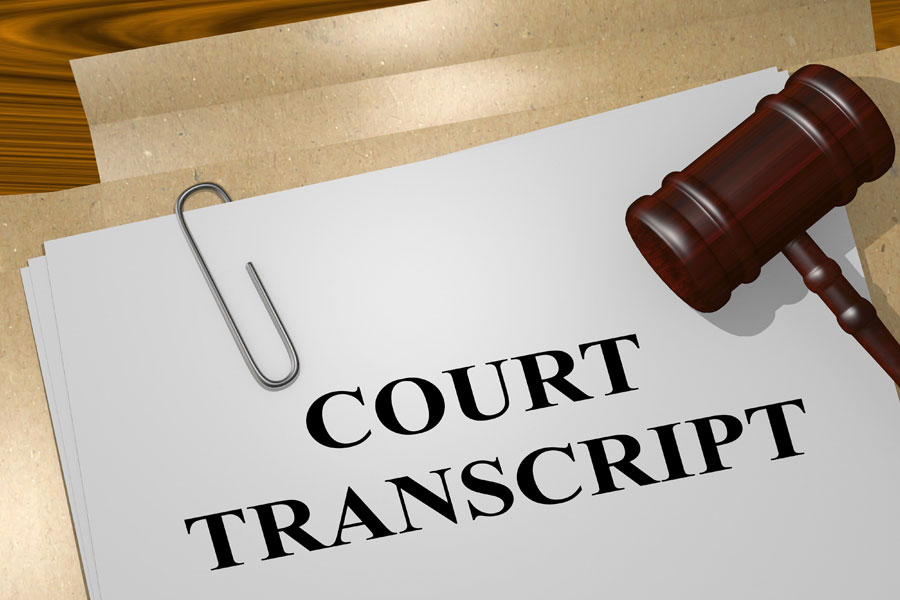Can legal video depositions replace live courtroom testimony?
Wiki Article
The Relevance of Lawful Video Depositions in Modern Legal Solutions: What You Must Know
Legal video depositions have become necessary in today's legal landscape. They offer a multidimensional view of witness testimonies that typical records just can not match. By recording both non-verbal and spoken interaction, these depositions boost the general understanding of a witness's integrity. The efficiency of video clip depositions hinges on numerous elements, including compliance with legal criteria and finest practices. Exploring these components exposes their true significance in modern legal servicesWhat Are Lawful Video Clip Depositions?
Lawful video clip depositions act as a crucial device in the lawsuits process. They entail tape-recording witness testaments in a video clip layout, capturing both spoken and non-verbal communication. This method permits attorneys to document the disposition, expressions, and responses of witnesses, offering a richer context for the statement. Generally conducted in a regulated setting, these depositions are led by lawyers who ask inquiries while a stenotype reporter records the discussion. The resulting video can be crucial for trial preparation, as it enables lawyers to analyze the reputation of witnesses and refine their strategies. In addition, lawful video clip depositions can be used in numerous lawful contexts, ranging from civil conflicts to criminal situations. The auditory and visual components of video depositions improve the discussion of proof, making it a crucial component in the modern lawful landscape. On the whole, they add significantly to the performance and effectiveness of legal proceedings.
Advantages of Video Clip Depositions Over Conventional Techniques
Video depositions offer many advantages contrasted to standard methods of taking witness statements. One considerable advantage is the capability to capture both aesthetic and audio components, supplying a much more detailed record of the witness's declarations. This double layout boosts clearness and enables attorneys to reference particular nuances throughout trial preparation. In addition, video clip depositions promote remote engagement, making it much easier for witnesses who might be inaccessible for in-person looks as a result of geographical constraints or health issues.Moreover, video depositions can expedite the general deposition procedure, minimizing the moment and costs connected with traveling and logistics. They additionally boost availability, as tape-recorded depositions can be conveniently shared amongst lawful teams and referenced any time. This convenience adds to far better instance monitoring and preparation. Generally, video depositions stand for a modern-day, efficient approach to gathering witness statements, aligning with the developing demands of the legal career.The Role of Body Language and Tone in Testimonies

In legal video depositions, body movement and tone play essential roles in communicating a witness's reputation and reliability. Nonverbal cues can offer insights into a witness's mood, affecting exactly how their testament is perceived. Understanding the effect of these components is crucial for jurors and attorneys alike when examining the reliability of a testament.
Nonverbal Interaction Insights
While spoken communication is frequently stressed in legal testaments, nonverbal signs such as body movement and tone play a necessary function in sharing reliability and feeling. Observers of depositions may keep in mind that a witness's posture, gestures, and faces can significantly influence understandings of integrity. As an example, consistent eye contact might indicate self-confidence, while avoiding stare might recommend deceit or pain. Similarly, the intonation-- its pitch, pace, and quantity-- can pass on sensations of sincerity or uncertainty. Lawyers need to be in harmony with these nonverbal signals, as they typically supply important context that complements talked words. Comprehending these subtleties can improve the efficiency of depositions and influence the outcome of lawful process.Psychological Tone Effect
The psychological tone shared during legal testimonies considerably impacts just how a witness is perceived. Body language, singing inflections, and faces play vital roles fit the story of a statement. A witness exhibiting confidence with stable eye call and a calm tone can infuse a feeling of reliability and engagement. On the other hand, indicators of anxiety, such as fidgeting or a shaky voice, may result in suspicion regarding their account. The subtleties of emotional expression can influence the analysis of realities, making it necessary for lawful experts to identify these hints. In video depositions, the aesthetic and auditory elements integrate, stressing the relevance of psychological tone in sharing sincerity and truthfulness within the lawful process.Credibility and Trustworthiness
A vital consider establishing trustworthiness and reliability during testaments hinges on the witness's body language and intonation. Onlookers commonly count on non-verbal cues-- such as eye call, stance, and motions-- to analyze a witness's sincerity. A witness who keeps eye contact and presents open body language might be viewed as more straightforward and trustworthy than one that prevents eye call or appears closed off. Additionally, tone of voice plays an important function; a constant, tranquil tone can strengthen the integrity of the testimony, while variations in pitch or volume may raise uncertainties. Eventually, the mix of body language and vocal tone substantially influences how a witness's declarations are received and analyzed in a legal context.Finest Practices for Conducting Video Depositions
Performing video clip depositions calls for mindful preparation and implementation to assure a efficient and clear presentation of testimony. It is important to pick a silent, well-lit place to reduce diversions and protected optimal video clip top quality. The equipment should be evaluated beforehand, consisting of video cameras, microphones, and lighting, to avoid technological issues during the deposition.Next, events entailed have to review the layout and procedures ahead of blog here time, seeing to it that everybody recognizes their roles. The deponent ought to be oriented on the procedure, consisting of exactly how to respond clearly and concisely.Additionally, preserving a specialist attitude throughout the session is necessary. This includes abstaining from talking over each other and verifying that all concerns are routed suitably. Ultimately, it is critical to record the deposition in a layout that permits simple playback and evaluation, maintaining the integrity of the statement for future usage.Lawful Considerations and Compliance Issues
Exactly how do legal considerations and conformity issues influence the performance of video clip depositions? Lawyers must browse a complex landscape of regulations, guaranteeing that video depositions abide by jurisdictional rules and requirements. Conformity with regulations worrying privacy, authorization, and taping methods is essential. Getting specific consent from all celebrations entailed is required to prevent legal repercussions.Additionally, the admissibility of video clip proof in court can pivot on compliance with procedural needs. Making certain that the devices made use of meets technological requirements is additionally important, as inadequate quality can weaken the deposition's reliability.Moreover, lawyers must recognize any kind of certain state laws that govern video depositions, as these can differ greatly. Failure to address these considerations can not just endanger the integrity of the find out deposition yet additionally influence the general situation technique, eventually impacting the client's lawful results.Exactly How Video Depositions Effect Court Assumption
While video depositions can work as effective tools in lawful process, their influence on court understanding is considerable. The visual and acoustic aspects of video clip recordings give jurors with a more extensive understanding of witness temperament, reputation, and emotional feedbacks. This multimedia technique can boost the jurors' capability to examine the integrity of statement compared to traditional text-based transcripts.Moreover, video depositions enable jurors to observe body language, tone of voice, and face expressions, all of which Continued can influence their interpretation of the witness's statements. The presence of a witness on display can humanize them, fostering empathy and link, which may persuade jurors' viewpoints. Alternatively, a witness that appears untrustworthy or incredibly elusive on video clip might result in negative assumptions that influence a court's choice. Eventually, the dynamic nature of video clip depositions plays an important duty fit how jurors translate proof and reach their verdicts.The Future of Video Depositions in Legal Technique
As advancements in innovation proceed to improve the legal landscape, the future of video depositions is poised for considerable development. Developments such as expert system, online truth, and enhanced video clip conferencing tools are anticipated to simplify the deposition procedure and enhance access. Attorneys might use AI-driven analytics to evaluate witness integrity and situation stamina more effectively.Moreover, the combination of digital truth can allow courts to experience immersive simulations of depositions, supplying much deeper context and understanding. Furthermore, the fad towards remote depositions is most likely to linger, providing higher flexibility for lawyers and customers alike.As remote job comes to be progressively normalized, video clip depositions will likely become typical method, decreasing costs and time constraints related to standard methods. Overall, these technological advancements assure to enhance the effectiveness, efficiency, and access of video depositions in legal method, ultimately changing exactly how attorneys get ready for test.Regularly Asked Inquiries
Just How Much Do Lawful Video Clip Depositions Typically Price?

Can Video Depositions Be Used in Any Type Of Kind Of Case?
Video clip depositions can be made use of in various kinds of cases, including civil, criminal, and household legislation. Their versatility enables attorneys to present witness statements successfully, adapting to the particular needs of various lawful situations.What Tools Is Required for a Video Clip Deposition?
To conduct a video deposition, vital equipment includes a high-quality video camera, microphone, lights, and a trustworthy recording tool. In addition, a computer system with editing and enhancing software might be necessary for post-production and formatting the final video clip.The length of time Does a Typical Video Deposition Last?
A typical video clip deposition lasts in between two to four hours, relying on the complexity of the situation and the number of inquiries presented. Extensive sessions may happen, however breaks are normally integrated for participant convenience.

Are Video Clip Depositions Admissible in Court?
Video depositions are generally permissible in court, supplied they stick to lawful standards and regulations of proof. Their use improves clearness and maintains witness testimony, helping in the judicial procedure during hearings and trials. Legal video depositions have come to be necessary in today's legal landscape. Additionally, legal video clip depositions can be utilized in various legal contexts, ranging from civil conflicts to criminal instances. Furthermore, video clip depositions help with remote involvement, making it much easier for witnesses that may be not available for in-person looks due to geographical restraints or health and wellness issues.Moreover, video clip depositions can quicken the total deposition procedure, decreasing the time and expenses linked with traveling and logistics. Making certain that the equipment made use of meets technical standards is likewise crucial, as bad high quality can weaken the deposition's reliability.Moreover, lawyers should be conscious of any specific state laws that govern video depositions, as these can differ considerably. In addition, the pattern towards remote depositions is likely to persist, offering higher versatility for lawyers and customers alike.As remote job comes to be increasingly stabilized, video clip depositions will likely become conventional technique, decreasing prices and time restrictions associated with typical techniques.Report this wiki page